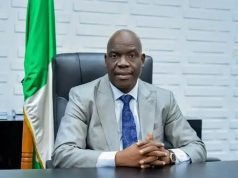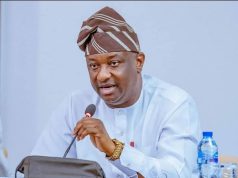By Taiwo Akerele
I am extremely worried for the President of Nigeria, Mr. Bola Ahmed Tinubu. I am worried because as his ardent follower since his days in NADECO and then later in 1999 when he became the Governor of Lagos, I have come to admire him as an ultra-progressive fellow. He is a man that desires the poor to breathe, he is a capitalist with a socialist conscience, a man that understands the importance of balancing economic growth with the quality of life of the people.
These pedigree and more made it easy for some of us to join forces with him after he won the APC primaries to secure victory at the February 25, 2023, polls, despite the very weak points of the opposition against him. But right now, his honeymoon with the Nigerian people may not last if he allows the prodigal sons of Nigeria to have a foothold in the implementation of his post-subsidy removal programs and general economic policies.
Recent economic policies that have been rolled out show very clearly that he is a man of his words. The renewed hope agenda upon which we campaigned is very rich and implementable, but the Nigerian ‘family black sheep’ must be tamed. This time around, the bulk does not stop at Mr. President’s table but the bulk that will shape the happiness of Nigerians will now stop at the table of 36 people plus one. The weakest link in this game will undermine every genuine intention of Mr. President.
When the announcement of palliative for Nigerians was made occasioned by subsidy removal, I knew there was going to be a problem of implementation. How do we get the proposed N8,000 to the targeted populace? Which method do we use? Who will be in charge? Will it not be politicized and hijacked? Do we have a reliable database of poor Nigerians outside the disputed National Social Register (NSR)? If it exists, how updated is it? What role will the governors play? Do we have reliable local government systems in the country?
These and many others agitated my mind and many others in the social protection space. This also formed the foundation of my contributions during the launching of the Nigerian Update report hosted by the World Bank on the 27th of June 2023 – how do we get this done in view of our past experiences which led to more issues.
In the last fifteen years, I am constrained to say that the Nigerian governors have been the albatross of all federal government efforts aimed at fast-tracking the developmental trajectory of this country and I have my few instances to prove this assertion.
In a very summarized manner, I will start with the Paris club refunds to states, there are no tangible results to show for the huge amounts received by state governments from this window. It took the ex-Governor of Rivers, Nyesom Wike, to appreciate then President Buhari for Nigerians to know that states have collected such a huge amount of money, as we pen down this, most governors are still denying they ever received extra cash from the federal government.
How many of us remember the Excess crude account/sale jumbo of the Obasanjo and Yar’ Adua administration? Billions of naira were shared between the states and local governments, and no Nigerian can point to any sustainable economic project that was built from that window that is impacting the lives of Nigerians right now. I stand to be corrected.
Anchor Borrowers program: About five years ago under the leadership of the then Central bank Governor Godwin Emefiele, a very noble agriculture-based project was birthed known as Anchor Borrowers program, just as Nigerians were looking forward to the benefit of this project around food security and all the value chains associated with it, the governors hijacked this project at the state level and the rest seems to be history just like billions of naira may have gone down the drain without consequences.
ENDARS/COVID-19 palliatives, at the advent of COVID-19 in 2020 and the ENDSARS protests which rocked Nigeria afterward, the Federal government under President Buhari distributed foods and other emergency stuff around Nigeria for the benefits of the people.
Unfortunately, to the chagrin and shock of many Nigerians, most state governments blatantly refused to share these things with the people of their states amidst biting hunger and anger in the land against the Nigerian government, it took the youths in some states to burst the warehouses for these things to be made available by force albeit in a chaotic manner. The rest they say is history with billions of naira gone with it.
The World Bank assisted NGCARES project appears to have succeeded because the federal government/world bank having learnt its lesson from previous exercises decided to manage this project directly from a dedicated office coordination unit from Abuja with direct contact with their state liaison officers, otherwise the success rate would have been abysmally poor as of today.
Multi-dimensional poverty: The annual multi-dimensional poverty poor routinely issued by the National Bureau of Statistics (NBS) indicates very clearly that there is a complete failure of governance in most states of Nigeria. In 2022, it was reported by the NBS that over 113 million Nigerians are multi-dimensionally poor.
The good thing about their own indicators of poverty is that it is measurable and trackable, for instance, it says millions of people lack access to basic health services, basic education, sanitation, and food security and all these are under the purview of the states and local governments. If over 60% of Nigerians are dimensionally poor due to lack of services that ought to be provided by a certain tier of government, your guess is as good as mine – FAILURE without any other form of classification.
It is against this backdrop that gets one agitated that the Bola Tinubu’s government should be wary of the level of engagement or involvement of the state governments in the implementation of his post-subsidy removal program either in the distribution of any form of palliative, in the execution of the Infrastructure Support Program (ISP), or any other measure whatsoever that is aimed at bringing the desired succor to the people of Nigeria – The governors’ have not proved to be reliable partners in progress.
Suggested next steps.
As an actor in the social protection space in Nigeria, it is my considered opinion.
1. The Nigerian state governors should be compelled to disclose how much they are expecting in terms of savings/additional revenue from the federation account occasioned by the subsidy removal. Full disclosure and accountability are the key words here.
2. This must be followed up with a supplementary budget to their state assemblies.
3. They should design and come up with their own states-based programs/work plans that are aimed at cushioning the effects of subsidy removal on the people, with a dedicated project monitoring and evaluation office, while the Federal government complements with a counterpart support measure.
4. There should be a citizen-led engagement around reporting and evaluation of each state program with verifiable data and impact on their people.
Good enough, Mr. President has been very proactive in setting his agenda very clearly with the N500bn approved by the National Assembly. However, the success of this intention is dependent on the strength of the implementation and the capacity of the handlers to break the cycle of policy failures that have marred pro-poor programs since the return to democratic rule in 1999, especially at the state level.
Secondly, it is advisable that the cash component of the intervention should be considered highly. This is because while the poor and vulnerable households across the country patiently and eagerly await the infrastructure support program and other measures approved by the National Economic Council (NEC), they will need an immediate disposable income for feeding, local transportation, childcare, and health services.
The National Social Register should not be discarded but reviewed, updated, and more beneficiaries should be mined in addition to the current register. Cash-in-aid to the poor, even in the United States and Canada, brings a lot of immediate succor and encourages citizenship faith in the governance process, while future tax payment from the beneficiaries is enhanced when the economy gets on track.
While I wish President Bola Tinubu well, we must learn from the past and navigate our ways from the stranglehold of the Nigerian prodigal sons and the Black sheep of Nigeria.
Thank you.
Taiwo Akerele
Executive Director, Policy House, and Convener, Independent Technical Working Group (ITWG) on Social Protection, was Former Chief of staff, Edo state. Wrote from Washington DC.








